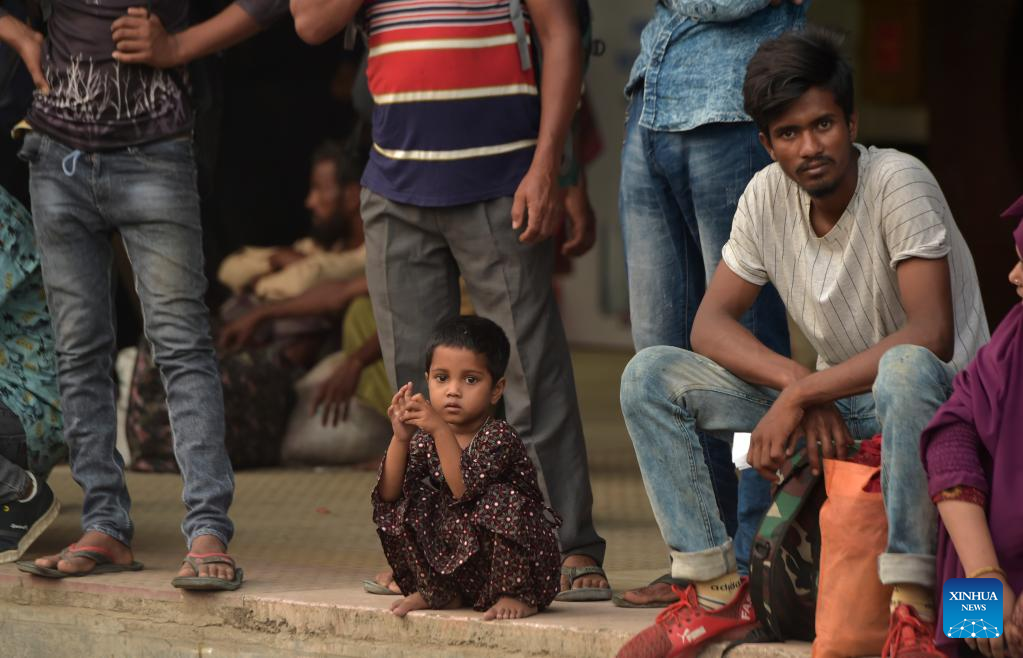
Travelers wait for trains at a station in Dhaka, Bangladesh, April 29, 2022. As Eid al-Fitr approaches, hundreds of thousands of Dhaka dwellers have streamed out of the city to join the festival with their kith and kin in village homes. (Xinhua)
DHAKA, April 30 (Xinhua) -- The normally busy streets in the Bangladeshi capital saw less traffic on Friday morning, while millions of people were on the move at bus terminals, train stations and river ports.
Dhaka dwellers are traveling to their hometowns this year to join the Eid festival celebration with their kith and kin in villages after the annual exodus had been stalled for two years due to the COVID-19 pandemic.
Eid al-Fitr, which marks the end of the Islamic holy fasting month of Ramadan, will be celebrated in Bangladesh on or around May 3 based on the sighting of the new moon.
"I'm going to celebrate Eid at grandpa's house," said Sabikun Nahar while getting onto a packed train with his family members in Dhaka's central Kamalapur Railway Station.
Traveler Tumpa Moni said many were unable to go home in the last two years due to the pandemic, but now the station has seen a mad rush of home goers since last weekend.
"Being able to go home in this crowd is a great joy for me," Moni said.
Some of the travelers have to sit on the rooftops of the trains when there are no more seats offered inside.
Traveler Naeem said his feelings can't be expressed in words. "Eid with family is something very special. We're all happy. We'll celebrate Eid with everyone."
The travel rush of millions of home-bound people could impact Bangladesh's entire transportation system during this Eid occasion, an expert at the Accident Research Institute at Bangladesh University of Engineering and Technology, said recently.
"We found that 11.5 million people left Dhaka for Eid in 2019, but it reduced to only 6 million during the pandemic," said Professor Md Hadiuzzaman, director of the institute, noting the number will be doubled again this time.
"Some 3 million people may leave Dhaka every day in the four days before Eid," he said.
According to the expert, trains, buses and ferries have the capacity to transport 1.3-1.4 million passengers daily. "Therefore, there is no transportation system for (the rest) 1.6 million people," he added.
Bangladeshi Railways Minister Nurul Islam Sujan earlier this month said they would operate 92 intercity trains in a special arrangement and there would be no weekly break for seven days for train services before Eid.
Also, authorities have made the necessary arrangements to minimize inconvenience for travelers ahead of the busy period.
Bangladeshi Road Transport and Bridges Minister Obaidul Quader said roads and highways across Bangladesh are in much better shape for the holiday travel rush this Eid than at any time in the past.
He said they have settled some common problems for Eid travelers in some places of mega highways in the northern part of the country as the road condition in Bangladesh is better. ■
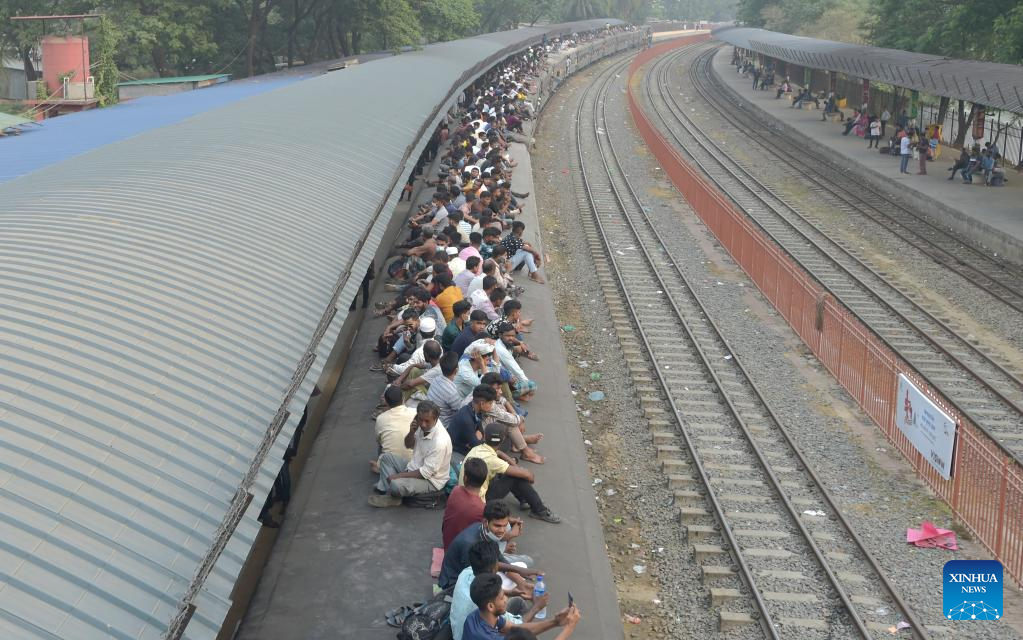
Travelers sitting on the roof of a train leave a station in Dhaka, Bangladesh, April 29, 2022. As Eid al-Fitr approaches, hundreds of thousands of Dhaka dwellers have streamed out of the city to join the festival with their kith and kin in their village homes. (Xinhua)
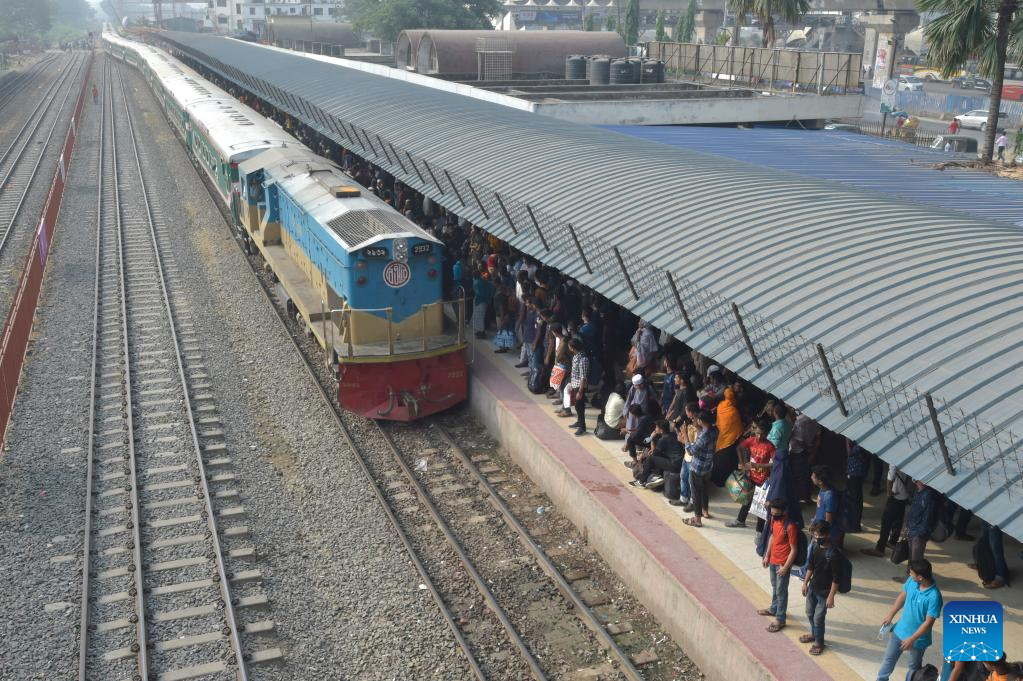
Travelers wait for trains at a station in Dhaka, Bangladesh, April 29, 2022. As Eid al-Fitr approaches, hundreds of thousands of Dhaka dwellers have streamed out of the city to join the festival with their kith and kin in village homes. (Xinhua)
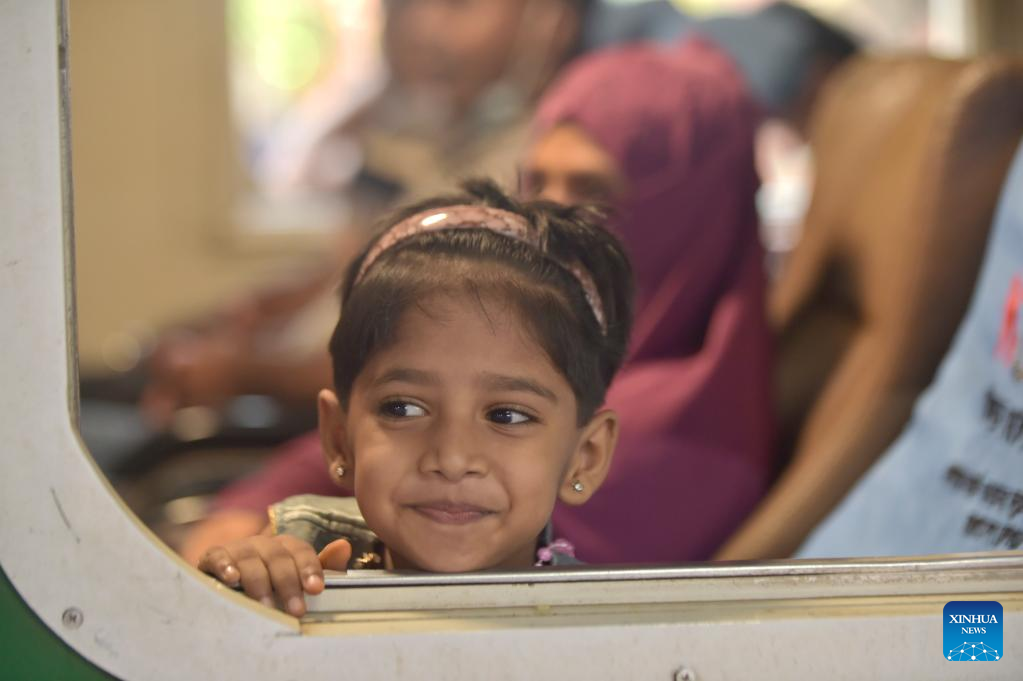
Photo taken on April 29, 2022 shows a child on a train in Dhaka, Bangladesh. As Eid al-Fitr approaches, hundreds of thousands of Dhaka dwellers have streamed out of the city to join the festival with their kith and kin in village homes. (Xinhua)
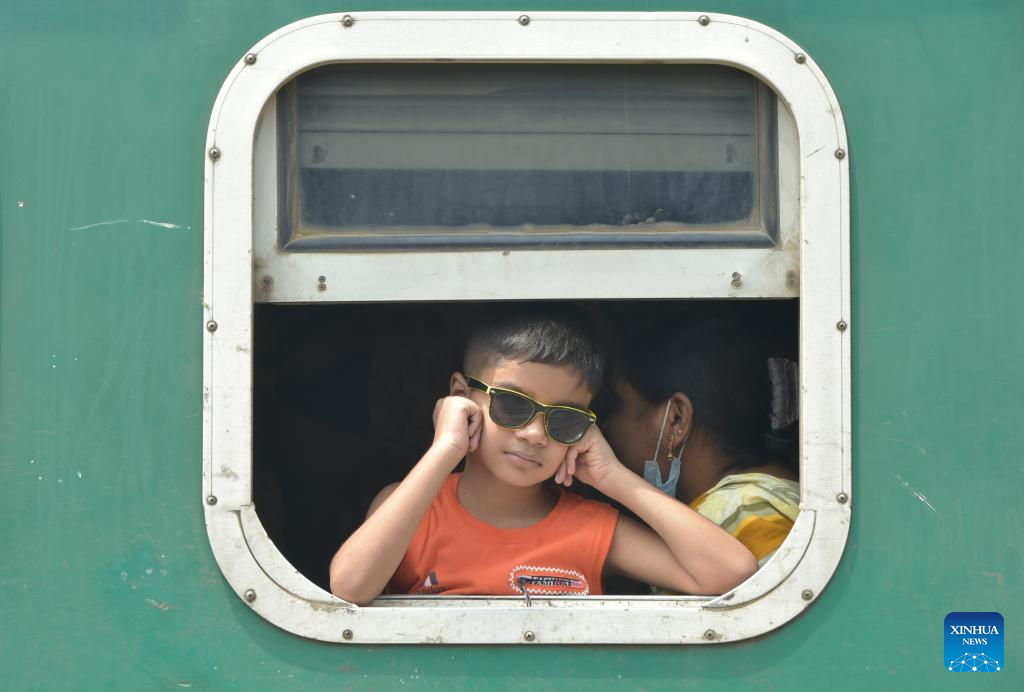
Photo taken on April 29, 2022 shows a child on a train in Dhaka, Bangladesh. As Eid al-Fitr approaches, hundreds of thousands of Dhaka dwellers have streamed out of the city to join the festival with their kith and kin in village homes. (Xinhua)



